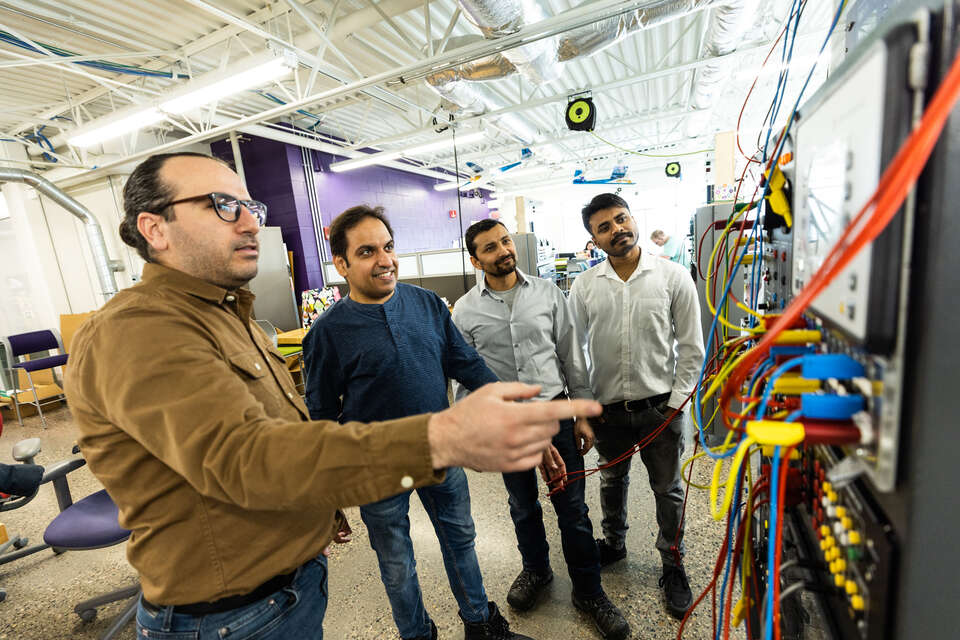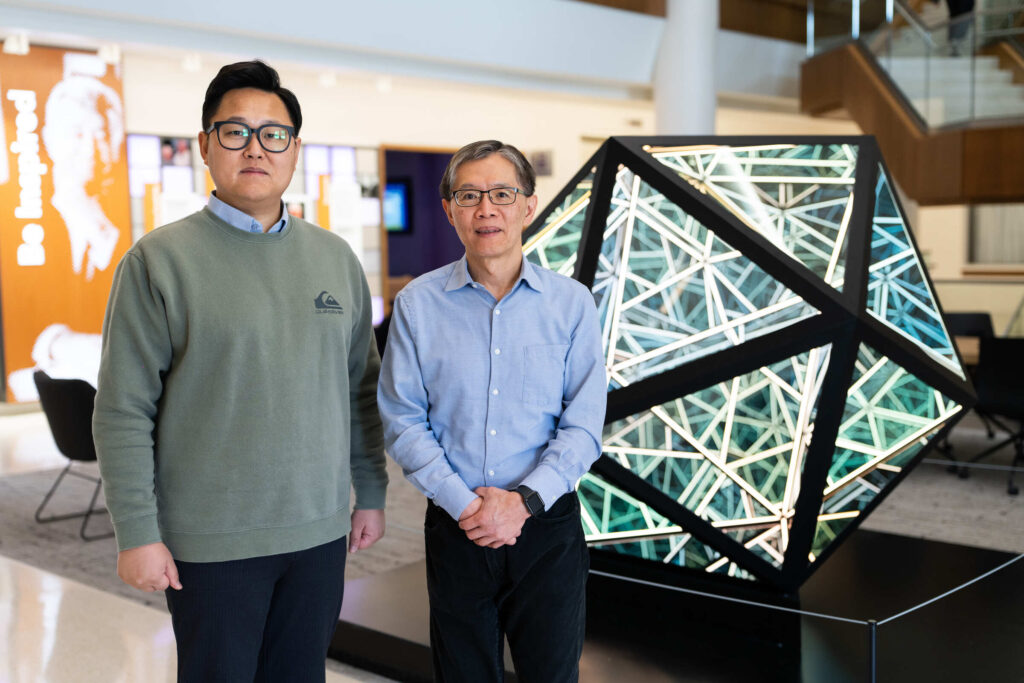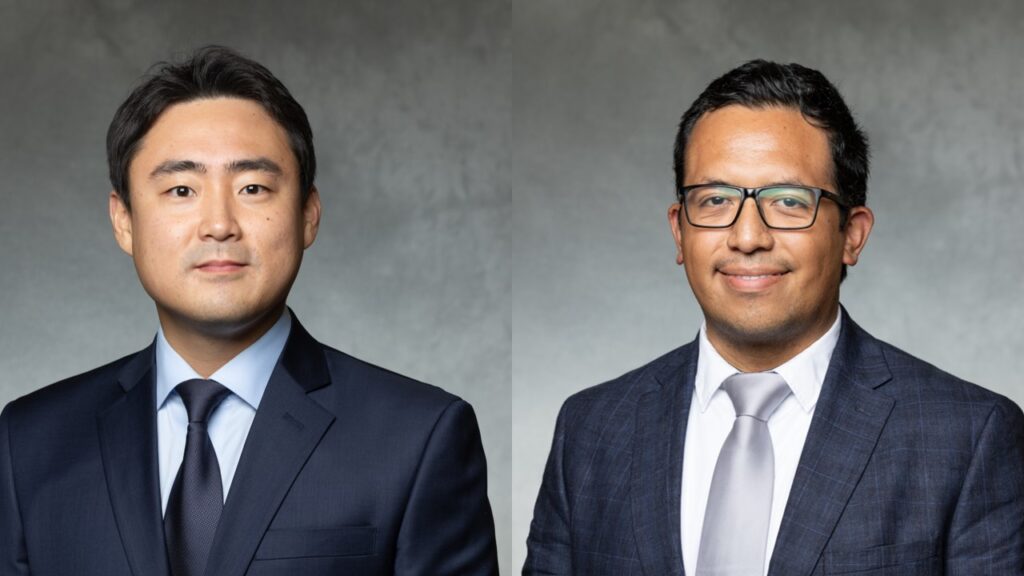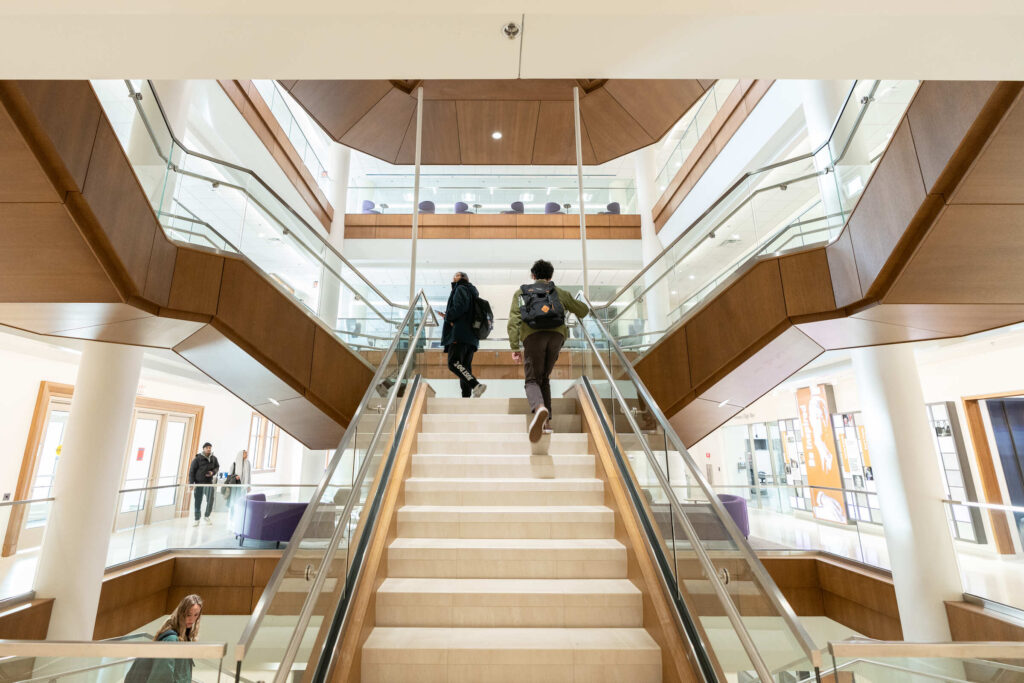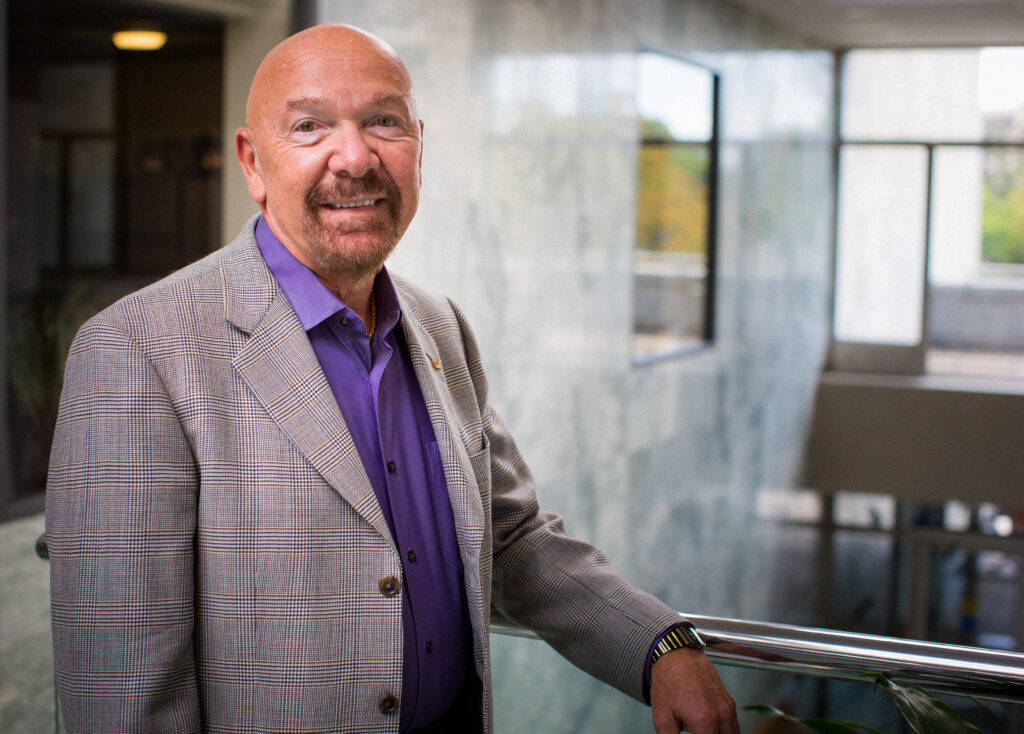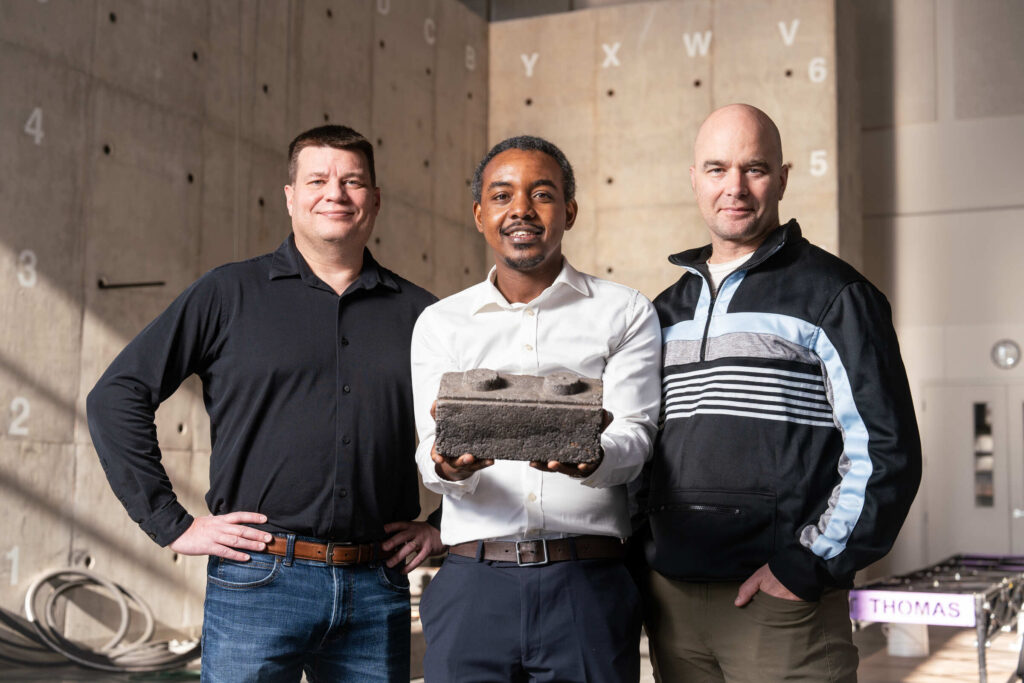Thanks to the efforts of U.S. Rep. Betty McCollum, more than $10 million is on its way to St. Thomas to advance microgrid research and establish a new center dedicated to helping emerging companies develop clean energy technology. Through it all, St. Thomas students will have a front-row seat to groundbreaking technology only found at a handful of institutions across North America.
McCollum, who served as the chair of the U.S. House Defense Appropriations Subcommittee from 2021-23 and is now the ranking member, championed the St. Thomas programs as she learned about the university’s unique engineering programs and research capabilities.
“It is my firm belief that Minnesota can play a more robust role in supporting our nation’s innovation priorities and national security needs,” McCollum said. “That means leveraging Minnesota’s academic sector, and working with top-tier institutions like the University of St. Thomas to develop the workforce of the future.”
Language in the past two federal appropriation bills has been driven by new research and projects emerging from St. Thomas, including funding to advance its Center for Microgrid Research. (In the FY22 Defense Appropriations Bill, $7 million was directed to St. Thomas for the Center for Microgrid Research. In the FY23 bill, another $4 million was directed to the center.)
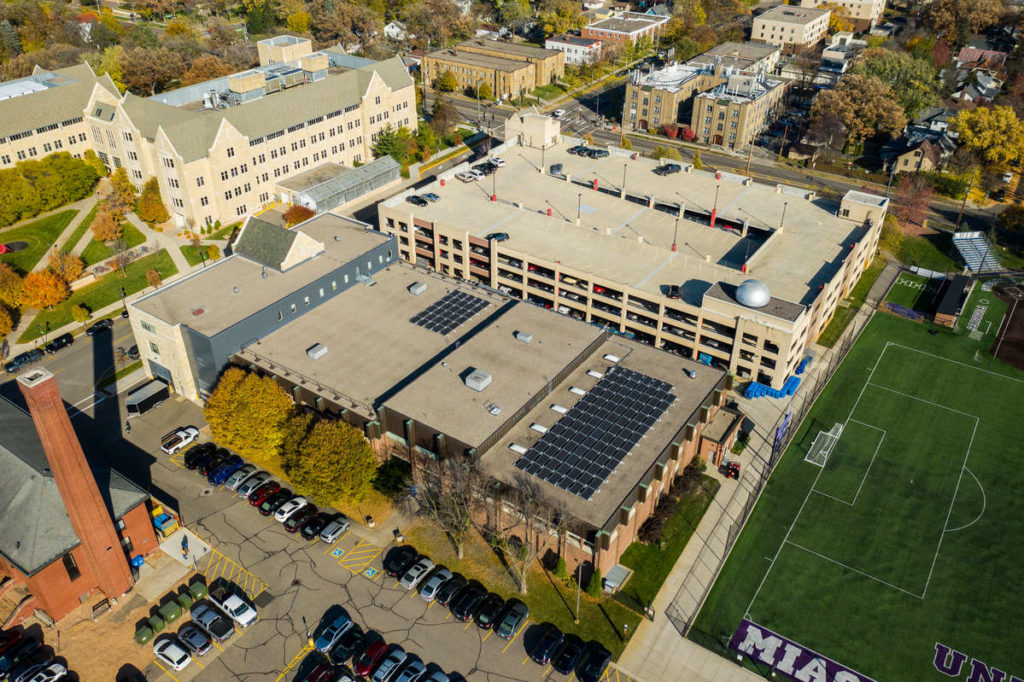
In the FY23 bill, McCollum’s efforts also funded the establishment of a new center at St. Thomas that will help emerging companies develop clean energy technology alongside the university’s students and faculty. The St. Thomas Applied Renewable Technologies (START) Center will create a testing and validation hub for companies who are developing sustainable technologies. For St. Thomas students, that means a unique view into how a renewable energy idea becomes a business.
“As our reputation grows nationally, we are deepening our connections in Washington, and our federal lawmakers are helping us identify resources that will benefit our students and advance our strategic goals,” President Rob Vischer said. “We are grateful to Rep. McCollum for helping us make connections that bring exciting new research and hands-on experiences to our community.”
Expanding the one of-a-kind St. Thomas Center for Microgrid Research
McCollum’s efforts have given a jolt of energy to the Center for Microgrid Research. The research and testing center in the School of Engineering is unique in the Midwest and among the top research institutions across North America. Because of its unique capabilities, the Department of Defense sees the center as a partner that can help design, test, and implement microgrid technologies at critical facilities.
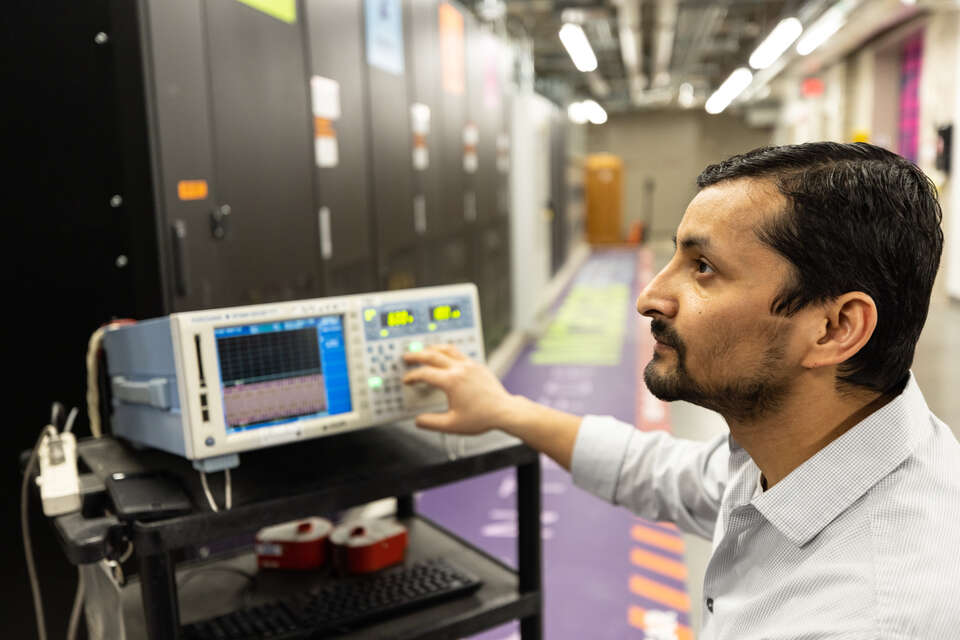
With the $11 million in new federal support, the St. Thomas research center has begun to partner with the U.S. Army Corps of Engineers to help the U.S. military reach its goal of installing a microgrid on each of its installations by 2035.
Funds will also allow the St. Thomas Center for Microgrid Research to undergo a massive expansion, increasing on-site generation by at least tenfold and expanding state-of-the-art research and development testbeds. Buoyed by an additional $5 million grant from the state of Minnesota, the microgrid will explore opportunities to power the university’s south campus, including the under-construction Schoenecker Center STEAM complex.
As the expansion rolls out, St. Thomas students will continue to be at the forefront of microgrid research, learning alongside top experts in the field and gaining experience as new innovations come to light.
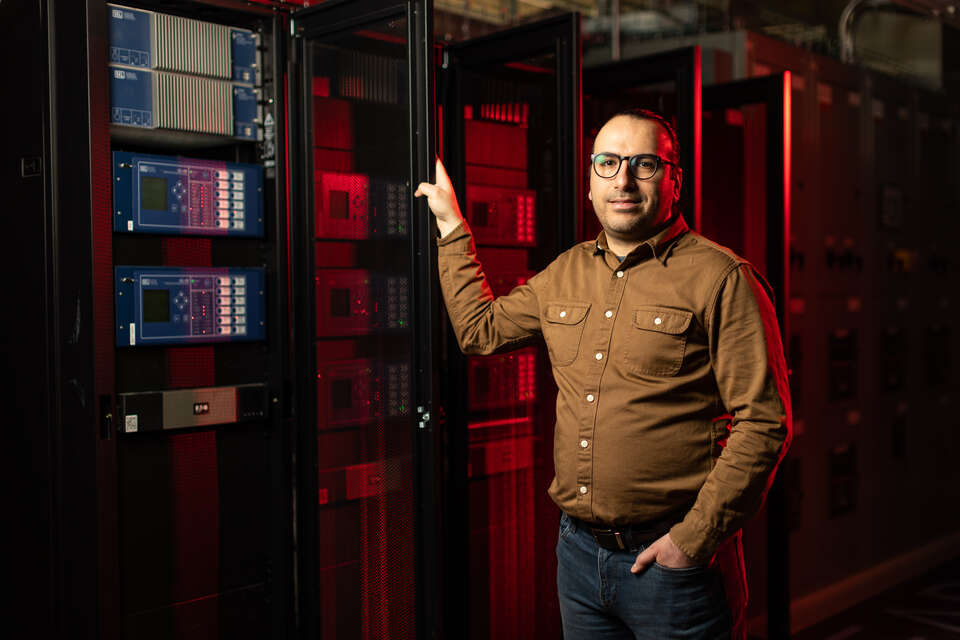
“Our students are working on state-of-the-art technology that will become the de facto technology in five to 10 years as the electric grid gets reimagined,” Director of the Center for Microgrid Research Dr. Mahmoud Kabalan said. “It’s a very unique educational experience to cover the theoretical concepts in the classroom and show my students how a real-world microgrid operates here on-campus.”
Clean energy development at START
The START Center, which will be established with $6 million in new federal funding, will work with several partners, including local energy entrepreneurs and the Army Research Lab, to develop and promote clean and sustainable technologies.
“The opportunities for our students to partner directly with companies in what we call ‘pre-commercialization’ research is unique,” Dean of the School of Engineering Don Weinkauf said. “Our students want to be involved in renewable energy research and they will now be able to see firsthand how ideas are tested and turn into products and companies. It’s an exciting time for the School of Engineering.”
The infusion of funds comes as the School of Engineering has been able to attract additional partnerships with federal agencies as the university’s relationships grow deeper in Washington. For example, funding to build a new sustainability curriculum has been awarded to St. Thomas through federal funding. And resources to create programs like Advanced Manufacturing certificates are also being awarded to St. Thomas.
“We are becoming known as a partner who is willing to think creatively to help solve key workforce issues,” Weinkauf said. “And these goals align with our goal to create relevant opportunities for our students that set them up for success.”
